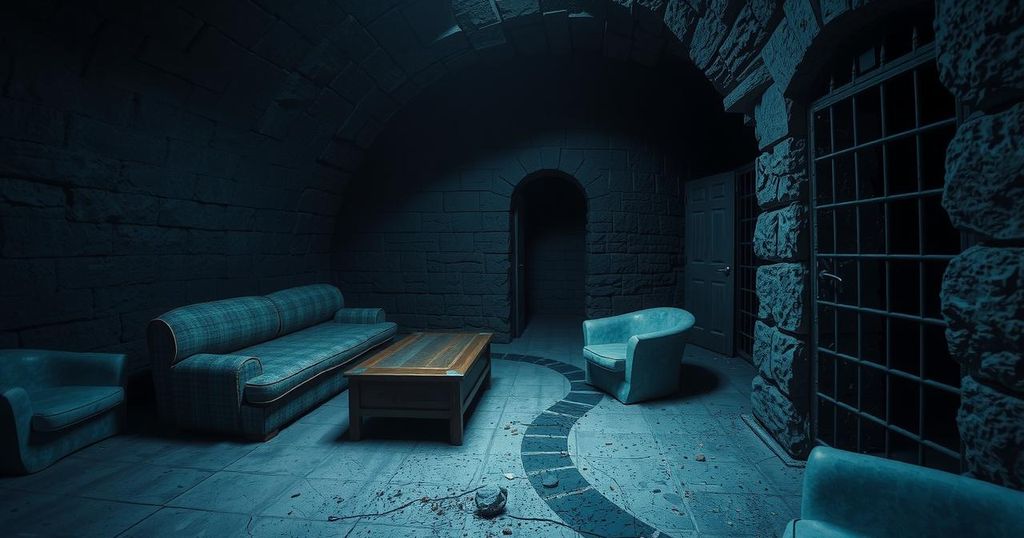Global news
AFRICA, AL HADATH, AL HADATH TV, AMAL, AMAL MOVEMENT, ARBITRARY DETENTION, ASIA, BEIRUT, HANNIBAL, HUMAN RIGHTS, HUMAN RIGHTS WATCH, INTERNATIONAL LAW, JUSTICE MINISTRY, LEBANON, LIBYA, MUAMMAR GADDAFI, MUSA AL - SADR, NABIH BERRI, NORTH AMERICA, SADR, SYRIA, TERRORISM, UN HUMAN RIGHTS COMMISSION, UNITED STATES, WAR CRIMES
Marcus Li
0 Comments
Hannibal Gaddafi’s Health Worsens After 10 Years in Detention
Hannibal Gaddafi, son of Muammar Gaddafi, struggles with worsening health in Lebanon as he begins a hunger strike after a decade of detention without trial. His lawyer criticizes Lebanese authorities for his condition, and there’s growing international interest in the legality of his detention. The UN may intervene, while family and legal representatives express concerns over political exploitation of the case.
Hannibal Gaddafi’s health has reportedly taken a turn for the worse as he marks ten years in detention in Lebanon. The son of the late Libyan leader Muammar Gaddafi has embarked on another hunger strike, as he protests the lack of trial and charges against him for over a decade. His lawyer asserts that Gaddafi has been hospitalized three times within the last month due to his deteriorating condition, attributing much of the blame to the Lebanese authorities.
According to the lawyer, “The Lebanese government is fully responsible for my client’s deteriorating health,” he told Al Hadath TV. He emphasized that Gaddafi has been held arbitrarily, without any formal charges, for a crime he insists he did not commit. This situation has prompted the UN Human Rights Commission to express intentions to interrogate Lebanon concerning the legitimacy of Gaddafi’s continued detention.
The urgency of the case comes as Hannibal resumed his hunger strike after Lebanese courts failed to respond to a release request filed by Libya’s justice ministry. Local reports indicate that the ministry is willing to share information regarding the 1978 disappearance of the Lebanese Shia cleric Imam Musa al-Sadr, which is closely tied to Gaddafi’s ongoing detention.
Hannibal Gaddafi’s troubles began when he was abducted in Syria in 2015, where he had sought political asylum. He was subsequently handed over to Lebanese authorities on accusations of concealing information related to Sadr and two others who vanished during a visit to Libya. Notably, Gaddafi was just a child at the time of Sadr’s disappearance and has yet to face formal charges related to the case.
The matter is particularly sensitive in Lebanon, especially among the Shia community who hold varying beliefs about Sadr’s fate. While some of Sadr’s family believe he could be alive, the prevailing view across Lebanon is that he is deceased. A Libyan delegation visited Lebanon earlier this year in hopes of reigniting a judicial cooperation agreement established in 2014. However, tangible progress in Gaddafi’s case appears stagnant.
Hannibal’s family recently issued a statement insisting that Lebanon is responsible for ensuring his safety. They delivered a strong message: “Attempts are being made to exploit this humanitarian case for purely political purposes and temporary interests,” labeling the ongoing situation as “regrettable.”
Additionally, political speculation surrounds Parliament Speaker Nabih Berri and whether he is obstructing Gaddafi’s release. Recent concerns have also been raised after leaked images showed Gaddafi in a cramped cell, leading organizations like Human Rights Watch to call for his release, highlighting that he held no power in Libya and was just two years old when Imam Musa al-Sadr disappeared.
Hannibal Gaddafi’s case continues to raise significant human rights concerns, as he remains in detention without trial for ten years. His current hunger strike highlights the urgency of his situation, with legal questions regarding his detention being raised internationally. As political tensions and humanitarian issues intertwine, pressure mounts on Lebanon to address Gaddafi’s plight adequately.
Original Source: www.newarab.com




Post Comment